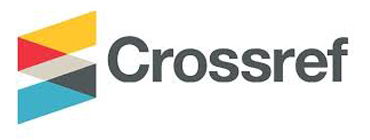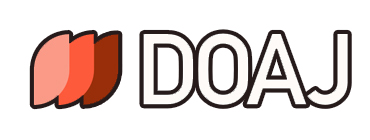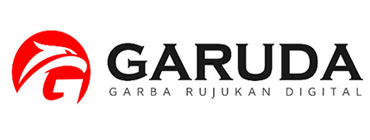KURIKULUM PENDIDIKAN DALAM AL-QUR’AN DENGAN PENDEKATAN TAFSIR MAUDHU’I
Abstract
Full Text:
PDFReferences
Achmad, G. H. (2021). Kedudukan Kurikulum dalam Pendidikan Agama Islam. Yasin, 1(2), 246–261. https://doi.org/10.58578/yasin.v1i2.130
Ahmad, W. H. S. W., Bidin, S. N. bani bt S., & Teh., K. S. B. M. (2017). Ayat-Ayat Astronomi Dalam Al-Qur’an Dan Pandangan HAMKA Berdasarkan Tafsir Ilmiy. Research Gate, April 2015.
Al-Mahalli, I. J., & & As-Suyuthi, I. J. (2006). Tafsir Jalalain dan Asbabul Nuzul Ayat, Jilid. I,. Sinar Baru Algensindo.
Alim, A. (2014). Tafsir Pendidikan Islam. Indie Publishing.
Asari, H. (2020). Hadis-Hadis Pendidikan sebuah penelusuran akar-akar ilmu pendidikan Islam. PERDANA PUBLISHING.
Baharun, H. (2017). Pengembangan Kurikulum Teori & Praktik. Pustaka Nurja.
Baqy, M. F. A. (1981). Al-Mu’jam al-Mufahras li Alfāz Alqurān al Karîm. Dâr al-Fikr.
Achmad, G. H. (2021). Kedudukan Kurikulum dalam Pendidikan Agama Islam. Yasin, 1(2), 246–261. https://doi.org/10.58578/yasin.v1i2.130
Ahmad, W. H. S. W., Bidin, S. N. bani bt S., & Teh., K. S. B. M. (2017). Ayat-Ayat Astronomi Dalam Al-Qur’an Dan Pandangan HAMKA Berdasarkan Tafsir Ilmiy. Research Gate, April 2015.
Al-Mahalli, I. J., & & As-Suyuthi, I. J. (2006). Tafsir Jalalain dan Asbabul Nuzul Ayat, Jilid. I,. Sinar Baru Algensindo.
Alim, A. (2014). Tafsir Pendidikan Islam. Indie Publishing.
Asari, H. (2020). Hadis-Hadis Pendidikan sebuah penelusuran akar-akar ilmu pendidikan Islam. PERDANA PUBLISHING.
Baharun, H. (2017). Pengembangan Kurikulum Teori & Praktik. Pustaka Nurja.
Baqy, M. F. A. (1981). Al-Mu’jam al-Mufahras li Alfāz Alqurān al Karîm. Dâr al-Fikr.
Depdiknas. (2003). Kurikulum 2004 Standar Kompetensi Mata Pelajaran Pendidikan Agama Islam Sekolah Menengah Atas dan Madrasah Aliyah. Puskur Balitbang Depdiknas.
Hermawan, Y. C., Juliani, W. I., & Widodo, H. (2020). Konsep Kurikulum Dan Kurikulum Pendidikan Islam. Jurnal MUDARRISUNA: Media Kajian Pendidikan Agama Islam, 10(1), 34. https://doi.org/10.22373/jm.v10i1.4720
Katsir, I. (1994). Lubaabut Tafsiir Min Ibni Katsiir Jilid 1. Mu-assasah Daar al-Hilaal Kairo.
Katsir, I. (2006). Syaikh Safiyyurrahman al-Mubarakfuri. Shahih Tafsir Ibnu Katsir. 8th ed. Pustaka Ibnu Katsir.
Maulida. (2022). Ayat-Ayat Al-Qur’an Tentang Kurikulum. Bidayah: Studi Ilmu-Ilmu Keislaman, 12(2), 192–204. https://doi.org/10.47498/bidayah.v12i2.637
Musbani, M. (2021). Kurikulum pendidikan Islam QS.Al-baqarah177. Jurnal At Tarbiyyah, 1(1), 27–58.
Nisa, F. I., & Hamami, T. (2023). Evaluasi Kurikulum Pendidikan Agama Islam. Risalah: Jurnal Pendidikan Dan Studi Islam, 9(3), 1374–1386.
Ritonga, N. A. (2017). Ayat-Ayat Tentang Manajemen Kurikulum Pendidikan Islam. Almufida, 2(1), 157–174.
Rohman, M. (2015). Problematika Kurikulum Pendidikan Islam. Jurnal Madaniyah, Viii. 5. 1, 1–15.
Sanaky, H. A. (2003). Paradigma Pendidikan Islam; Membangun Masyarakat Madani Indonesia. Safiria Insania Press.
Ulwan, A. N. (2015). Pendidikan Anak dalam Islam. Al-Andalus.
Wijarwadi, W., & Alam, S. (2024). Gonta-ganti kurikulum di Indonesia: apa sebabnya? The Conversation. https://theconversation.com/gonta-ganti-kurikulum-di-indonesia-apa-sebabnya-215821#:~:text=Di Indonesia, sejak pertama diterapkan pada tahun 1947,
DOI: http://dx.doi.org/10.30829/tar.v31i1.4188
Refbacks
- There are currently no refbacks.

Jurnal Tarbiyah by UIN Sumatera Utara Medan is licensed under a Creative Commons Attribution-NonCommercial-ShareAlike 4.0 International License.
Based on a work at http://jurnaltarbiyah.uinsu.ac.id/index.php/tarbiyah.
Permissions beyond the scope of this license may be available at http://jurnaltarbiyah.uinsu.ac.id/index.php/tarbiyah/about/submissions#copyrightNotice.
















